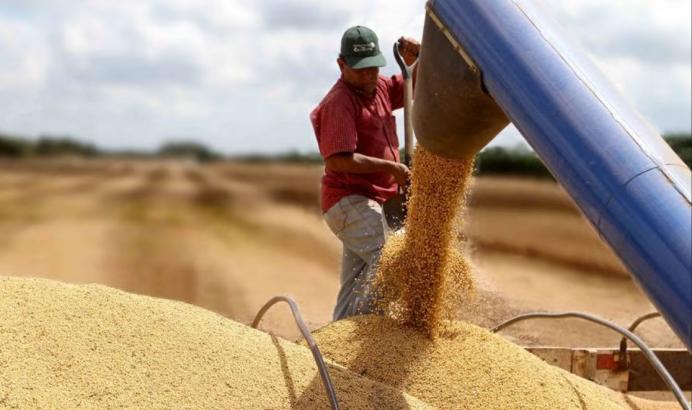
On July 9, 2025, according to OFI, the Argentine government raised the export taxes on soybeans, corn and sunflower seeds again starting from July 1. This move has drawn widespread attention in the international agricultural product market. As one of the world's major exporters of soybeans, soybean oil and corn, Argentina's policy adjustment will undoubtedly have a profound impact on the global agricultural product trade pattern.
Specifically, the export tariff rate on soybeans will be raised from 26% to 33%, that on corn and sorghum from 9.5% to 12%, and that on sunflower seeds from 5.5% to 7%. In contrast, the export tariffs on wheat and barley remain unchanged until March 31, 2026. This policy adjustment not only involves changes in tax rates, but also reflects the complex considerations of the Argentine government in balancing domestic agricultural development with the demand for foreign exchange reserves.
From a business perspective, this move by the Argentine government will undoubtedly have a significant impact on the export of agricultural products. On the one hand, the increase in tax rates will raise the export costs of agricultural products, thereby reducing the competitiveness of Argentine agricultural products in the international market. For Argentina, which relies on agricultural product exports for foreign exchange earnings, this will undoubtedly put pressure on its export income. On the other hand, the adjustment of tax rates will also have a direct impact on farmers' income. It is estimated that the increase in soybean export tax may lead to a reduction of about 30 US dollars per ton in farmers' income. This is undoubtedly adding insult to injury for farmers who are already plagued by low crop prices and weather disasters.
However, behind this move by the Argentine government lies a much deeper consideration. In recent years, Argentina has been confronted with the problem of tight foreign exchange reserves. To stabilize the domestic economy and repay debts to the International Monetary Fund, the Argentine government urgently needs to increase its foreign exchange reserves. Restoring and raising the export tax rate for agricultural products can, to a certain extent, increase the government's tax revenue and thereby alleviate the pressure on foreign exchange reserves. In addition, by regulating the export of agricultural products, the Argentine government can also control domestic agricultural product prices to a certain extent, preventing domestic supply shortages and price hikes caused by a sharp increase in exports.
This policy adjustment has also sparked widespread controversy and concern. Agricultural cooperatives and farmers' groups in Argentina have all expressed that the frequent adjustment of tax rates has brought great uncertainty to agricultural production. They called on the government to formulate clear and lasting agricultural policies to ensure that farmers can have a stable and predictable production environment. In addition, the increase in tax rates may also have a long-term negative impact on Argentina's agricultural competitiveness. Against the backdrop of increasingly fierce competition in the global agricultural product market, Argentina will find it very difficult to gain a foothold in the international market if it fails to maintain its advantages in terms of price and quality.
From a broader perspective, this policy adjustment in Argentina also reflects the complexity and uncertainty in global agricultural product trade. With the in-depth development of globalization and trade liberalization, agricultural product trade among countries has become increasingly close. However, in the face of multiple challenges such as domestic economic pressure, changes in international market demand and climate change, governments of various countries often have to make a difficult choice between protecting domestic agricultural production and maintaining the international trade order. This case of Argentina undoubtedly provides beneficial inspiration and reflection for global agricultural product trade.
To sum up, Argentina's re-increase in export taxes on soybeans, corn and sunflower seeds is a complex and sensitive policy adjustment. Although this measure has to some extent helped relieve Argentina's foreign exchange reserve pressure and control domestic agricultural product prices, it has also brought uncertainties to agricultural production and may have a long-term negative impact on Argentina's agricultural competitiveness. Today, as global agricultural product trade becomes increasingly close, governments around the world need to formulate agricultural policies more prudently to ensure the stability and sustainability of agricultural production. At the same time, strengthening international cooperation and exchanges is also one of the important ways to address the challenges of global agricultural product trade.

The global electric vehicle market in 2025 is experiencing intense turbulence. Tesla, once a disruptor that reshaped the industry landscape, is now mired in an unprecedented sales crisis.
The global electric vehicle market in 2025 is experiencing …
Recently, Chinese telecom companies Huawei and ZTE signed a…
Recently, according to Xinhua News Agency, Israel's air str…
A strongly worded report from the Equality Trust argues tha…
On November 27, 2025, Alibaba officially entered the global…
The focus of the global financial market in 2025 has always…